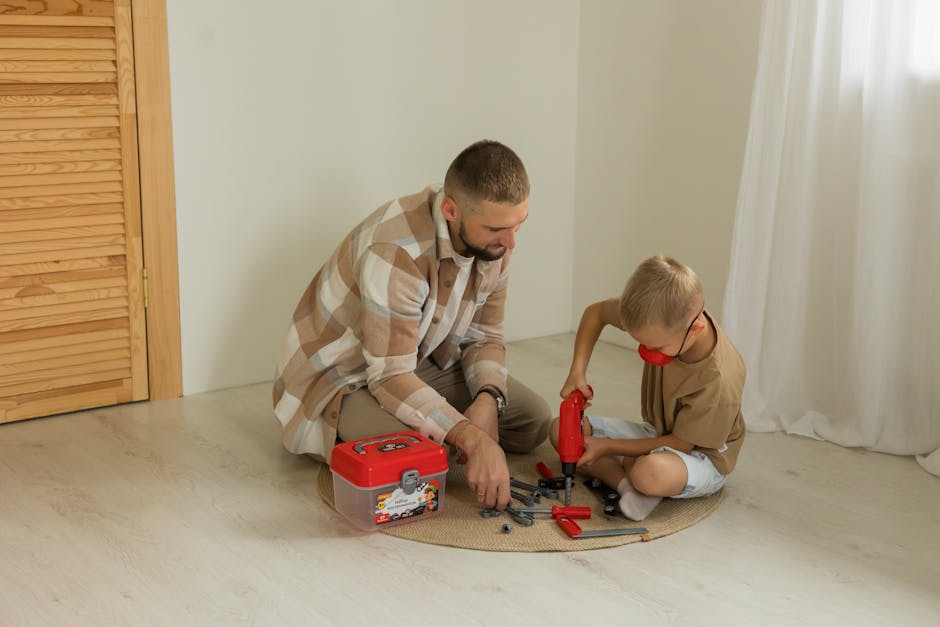Building Your Child’s Support Team: Working Effectively with Coaches and Academy Staff
‘The real turning point wasn’t a training breakthrough or a great performance,’ reflects David, whose son spent six years in a Premier League academy. ‘It was when we finally understood that we were part of a team supporting him—not just spectators of his journey.’
This perspective shift represents what experienced academy families eventually discover: behind every successful academy player stands not just dedicated parents, but a collaborative network of adults all focussed on the child’s development.
Learning to work effectively with this network—coaches, education staff, welfare officers, and others—can transform your family’s academy experience from overwhelming to empowering.
Understanding the Academy Ecosystem

Modern football academies are complex organisations with specialised staff covering every aspect of player development. Understanding who does what helps you navigate the system more effectively.
Key Academy Roles and Responsibilities
| Role | Primary Responsibility | Best Approached For |
|---|---|---|
| Head Coach | Age-group training and match preparation | Tactical and technical development |
| Assistant Coach | Support head coach, often with specific focus areas | Specialised skill development, training questions |
| Academy Manager | Overall academy operation and philosophy | Major programmatic questions, serious concerns |
| Head of Coaching | Coach development and consistent methodology | Questions about coaching approach |
| Education Officer | Academic progress and school liaison | School conflicts, academic support |
| Welfare Officer | Player wellbeing, safeguarding, pastoral care | Personal issues, bullying concerns, mental health |
| Sport Scientist | Physical development, injury prevention | Growth concerns, fitness questions |
| Physiotherapist | Injury assessment and rehabilitation | Injury management, return-to-play protocols |
| Performance Analyst | Match and training analysis | Understanding performance feedback |
| Player Care Officer | Holistic player support and family liaison | General support needs, practical assistance |
‘Understanding who to approach for what was game-changing for us,’ shares Samira, mother of a 14-year-old academy player. ‘We used to direct everything to the coach, which wasn’t always appropriate. Now we know the welfare officer is better for some concerns, the education staff for others.’
Communication Fundamentals: The When, How and What

Effective communication with academy staff follows principles that respect everyone’s time while ensuring your son gets appropriate support.
Timing Your Communication
| Situation | Appropriate Timing | Inappropriate Timing |
|---|---|---|
| Match feedback | 24-48 hours after a match | Immediately after matches |
| Selection questions | During scheduled parent meetings | Day before a match |
| Training concerns | Via scheduled appointment | During training sessions |
| Urgent welfare issues | Immediately via proper channels | No restrictions—welfare comes first |
‘I learnt the hard way not to approach coaches right after matches,’ admits Mark. ‘Emotions are high, and it’s rarely productive. Waiting 24 hours and sending a calm email requesting a conversation works much better.’
Communication Channels
Most academies have preferred communication pathways. Typically:
- Team communication apps/platforms for logistics, schedules, and general announcements
- Email for non-urgent questions or to request conversations
- Phone calls for more pressing matters
- Face-to-face meetings for substantive discussions (usually by appointment)
Pro tip: Always follow the academy’s communication guidelines. Going around established channels can create friction.
Framing Productive Conversations
The approach you take significantly impacts how your communication is received:
| Instead of… | Try… | Why It Works |
|---|---|---|
| ‘Why isn’t my son playing?’ | ‘Could you help me understand what my son needs to work on to earn more playing time?’ | Solution-focussed rather than confrontational |
| ‘The training isn’t challenging enough.’ | ‘I’ve noticed my son seems very comfortable in training. Are there ways he could be pushed further?’ | Observation-based rather than judgemental |
| ‘My son says the coach doesn’t like him.’ | ‘My son seems to be interpreting some feedback negatively. Could we discuss how to help him process coaching constructively?’ | Focuses on perception and support rather than blame |
| ‘You promised he would play in that position.’ | ‘I thought we had discussed my son developing in central midfield. Has the development plan changed?’ | Seeks clarification rather than accusing |
Lisa found this approach transformed her relationship with her son’s coaches:
‘I used to go in ready for battle, thinking I needed to advocate aggressively. When I started approaching conversations collaboratively—seeking to understand rather than demand—everything changed. Coaches became more open, shared more information, and seemed to appreciate my input.’
Building Productive Partnerships with Key Staff

Every academy staff member plays a unique role in your son’s development. Here’s how to build effective relationships with each:
Working With Coaches
Coaches are the most visible academy figures, but often the most time-pressured. To build strong relationships:
-
Respect the coach’s expertise
While you know your child best as a person, the coach sees him in a specialised context with trained eyes.
Try this: When discussing your son’s development, start by asking what the coach is observing before sharing your own perspectives.
-
Focus on development, not just playing time
Conversations solely about minutes on the pitch rarely build positive coach relationships.
Try this: Ask about specific development goals and how progress is being measured, rather than focussing exclusively on team selection.
-
Support the feedback loop
Coaches need to know their guidance is being reenforced at home.
Try this: After receiving coach feedback, briefly explain how you’ll support those focus areas at home, creating a united approach.
Partnering With Education Staff
Education officers and tutors ensure academic progress remains on track alongside football development:
-
Be transparent about academic challenges
Education staff can’t support effectively if they don’t know about struggles.
Try this: Proactively share school reports and highlight any subjects where your son needs additional support.
-
Plan ahead for conflicts
When school and football commitments clash, early communication prevents issues.
Try this: Create a shared calendar of important academic dates (exams, projects) at the start of each term so these can be accommodated in training schedules.
-
Value academic feedback equally
Show your son that you place equal importance on educational and football development.
Try this: After parent meetings, discuss academic progress before football development, signalling its priority.
Utilising Welfare Officers
Perhaps the most underused resource in academies, welfare officers focus specifically on your son’s wellbeing:
-
Normalise welfare cheque-ins
Some families only contact welfare when there’s a crisis, missing opportunities for preventative support.
Try this: Schedule occasional catch-ups even when things are going well, building rapport for if/when challenges arise.
-
Share significant life events
Family circumstances (bereavements, parental separation, house moves) can affect performance and behaviour.
Try this: Give welfare officers a heads-up about major life changes so they can provide appropriate support and inform other staff as necessary.
-
Use them as communication bridges
Welfare officers can often help navigate difficult conversations with coaching staff.
Try this: If you’re unsure how to approach a sensitive issue, consult the welfare officer first for guidance.
Navigating Challenging Situations

Even with the best relationships, difficult situations inevitably arise. How you handle these defines your reputation within the academy:
When You Disagree With Coaching Decisions
Every parent eventually questions a coaching decision. Managing these moments effectively is crucial:
- Cooling-off period – Wait at least 24 hours before initiating any conversation
- Perspective cheque – Is this about your emotions or your son’s development?
- Private conversation – Request a specific meeting time rather than raising issues publicly
- Curious approach – Enter seeking to understand rather than to challenge
- Forward-focussed resolution – End with clarity on the path forward, not dwelling on past decisions
‘When my son was played out of position for several weeks, I was frustrated,’ shares Michael. ‘Instead of complaining, I asked the coach about the developmental rationale. He explained they were building my son’s positional versatility deliberately, which made complete sense once I understood the long-term plan.’
When Your Child Is Struggling
During difficult periods with performance or motivation, working with academy staff becomes especially important:
- Identify the right support person – The head coach might not always be the appropriate first contact
- Share relevant information – Provide context that might not be visible at the academy
- Ask for specialised input – Sport psychologists or welfare officers may offer perspectives coaches cannot
- Create a unified approach – Ensure academy and home messages aline
- Set review timelines – Establish when and how you’ll reassess the situation
When Communication Breaks Down
If you feel communication has become ineffective:
- Request a reset meeting – Sometimes acknowledging communication difficulties and starting fresh helps
- Involve a neutral third party – Welfare officers can often facilitate difficult conversations
- Document key points – Follow up meetings with brief emails summarising agreements
- Focus on your son’s experience – Centre discussions on what will best support his development
- Escalate appropriately – If necessary, follow the academy’s formal communication hierarchy
The Parent Advisory Approach

The most successful academy parents adopt what might be called an ‘advisory’ stance—neither completely hands-off nor overly involved.
James describes how his perspective evolved: ‘I realised my role wasn’t to coach him—the academy has professionals for that. It wasn’t to be completely passive either. I’m more like his board of advisors—offering support, asking good questions, and helping him navigate the system while letting him own his journey.’
This advisory approach involves:
-
Helping your son understand feedback – Rather than adding your own coaching, help him process and apply what his coaches have advised
-
Teaching self-advocacy – Gradually encouraging your son to communicate directly with staff about his development
-
Providing context and perspective – Helping your son understand the bigger picture beyond immediate successes or disappointments
-
Supporting reflection – Asking questions that promote self-awareness and learning
-
Ensuring wellbeing – Monitoring the overall impact of the academy experience on your child’s happiness and development
Developing Your Son’s Self-Advocacy Skills

Perhaps the greatest gift academy parents can give their sons is the ability to advocate for themselves within the system. This grows increasingly important as players progress through the age groups.
Age-Appropriate Self-Advocacy
| Age Group | Parental Role | Player Responsibility |
|---|---|---|
| U9-U11 | Primary communicator with staff | Learning to listen to and apply coach feedback directly |
| U12-U14 | Gradual transition to supporting role | Beginning to ask questions and seek clarification themselves |
| U15-U16 | Advisory and backup support | Primary communication with coaches about development |
| Scholars | Background guidance only | Full ownership of professional relationships |
‘We started small,’ explains Robert, whose son is now a scholar at a Championship club. ‘First having him thank coaches himself after sessions, then encouraging him to ask one question if he didn’t understand something, then gradually stepping back further. By 15, he was managing most of his football communications independently, which prepared him perfectly for the scholarship environment.’
Teaching Effective Self-Advocacy
Help your son develop these crucial skills by:
- Role-playing conversations before he has them with coaches
- Discussing what makes questions effective (specific, solution-focussed, timely)
- Reflecting together on interactions that went well or poorly
- Celebrating growth in communication confidence
- Remaining available as a sounding board while giving him space to develop his own style
The Long-Term Relationship View

Successful academy families think beyond immediate issues to build lasting, positive relationships with academy staff.
‘The relationships we built over seven years at the academy have continued long after my son was released,’ shares Caroline. ‘His former coaches still cheque in on him, offer advice about his university football, and have become part of our extended support network.’
This long-term approach involves:
- Expressing genuine appreciation – Acknowledging staff contributions to your son’s development
- Offering reasonable support – Volunteering appropriately when the academy needs parent involvement
- Understanding the bigger picture – Recognising staff are balancing the needs of many players
- Building relationship credit – Being consistently reasonable makes occasional advocacy more effective
- Modelling positive interactions – Demonstrating to your son how professional relationships work
An Investment with Lifelong Returns

Learning to work effectively with authority figures and navigate institutional structures is a skill your son will need throughout his life—in education, careers, and beyond.
By thoughtfully building relationships with academy staff, you’re not just supporting his football development; you’re providing a masterclass in professional interaction that will serve him regardless of his sporting outcome.
As David reflects five years after his son left the academy system: ‘The technical football skills have faded without regular practise, but the ability to communicate with mentors, coaches, and teachers has transferred directly to university and work life. Learning to build his own support network might be the most valuable skill he gained from those academy years.’
When approached with mutual respect, clear communication, and collaborative intent, academy staff evolve from intimidating authority figures to valued partners in your child’s development journey—creating a support team that nurtures both the player and the person.
How has your relationship with academy staff evolved over time? We’d luv to hear your experiences in the comments below, or get in touch with us directly to share your academy journey.
Contact us to discuss our services now!
